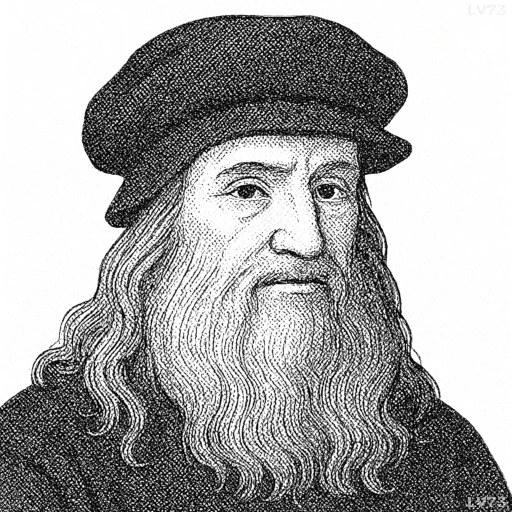“The poet ranks far below the painter in the representation of visible things, and far below the musician in that of invisible things.”

- April 15, 1452 – May 2, 1519
- Italian
- A versatile man (painter, sculptor, architect, inventor, scientist, etc.)
table of contents
Quote
“The poet ranks far below the painter in the representation of visible things, and far below the musician in that of invisible things.”
Explanation
In this quote, Leonardo da Vinci compares the artistic abilities of different mediums, suggesting that the poet, while skilled in expressing emotion and thought, is limited in comparison to the painter and the musician. Da Vinci places the painter above the poet because painting deals directly with the visual, representing the physical world in a way that is immediate and concrete. A painting captures realities that can be seen and experienced by the viewer. Similarly, da Vinci places the musician above the poet in representing the invisible, as music can convey emotion and mood through sound, something that is intangible but deeply felt, engaging the senses in a way that transcends the visual.
Historically, this quote reflects the Renaissance ideal of the hierarchy of the arts, which often placed visual arts and music at a higher level than literature because they were thought to directly affect the senses. Da Vinci himself was an artist who valued the visual representation of nature and the emotional power of music. In his time, artists and thinkers also saw painting and music as more capable of immediacy—capturing and conveying experience directly. Literature, while highly valued, was viewed as more abstract, as it required interpretation by the reader.
In modern times, this quote invites us to reflect on the different ways art interacts with human perception. The visual arts allow for immediate recognition of the world, while music can communicate emotions and stories that words often cannot. The poet, however, deals with the abstract, crafting experiences through language that require deeper engagement and interpretation. Each art form has its own power to touch us, and while da Vinci may have had a preference for the more direct forms of expression, today we recognize the unique contribution that literature—with its ability to articulate the complexities of the human experience—brings to the creative world.
Would you like to share your impressions or related stories about this quote in the comments section?




